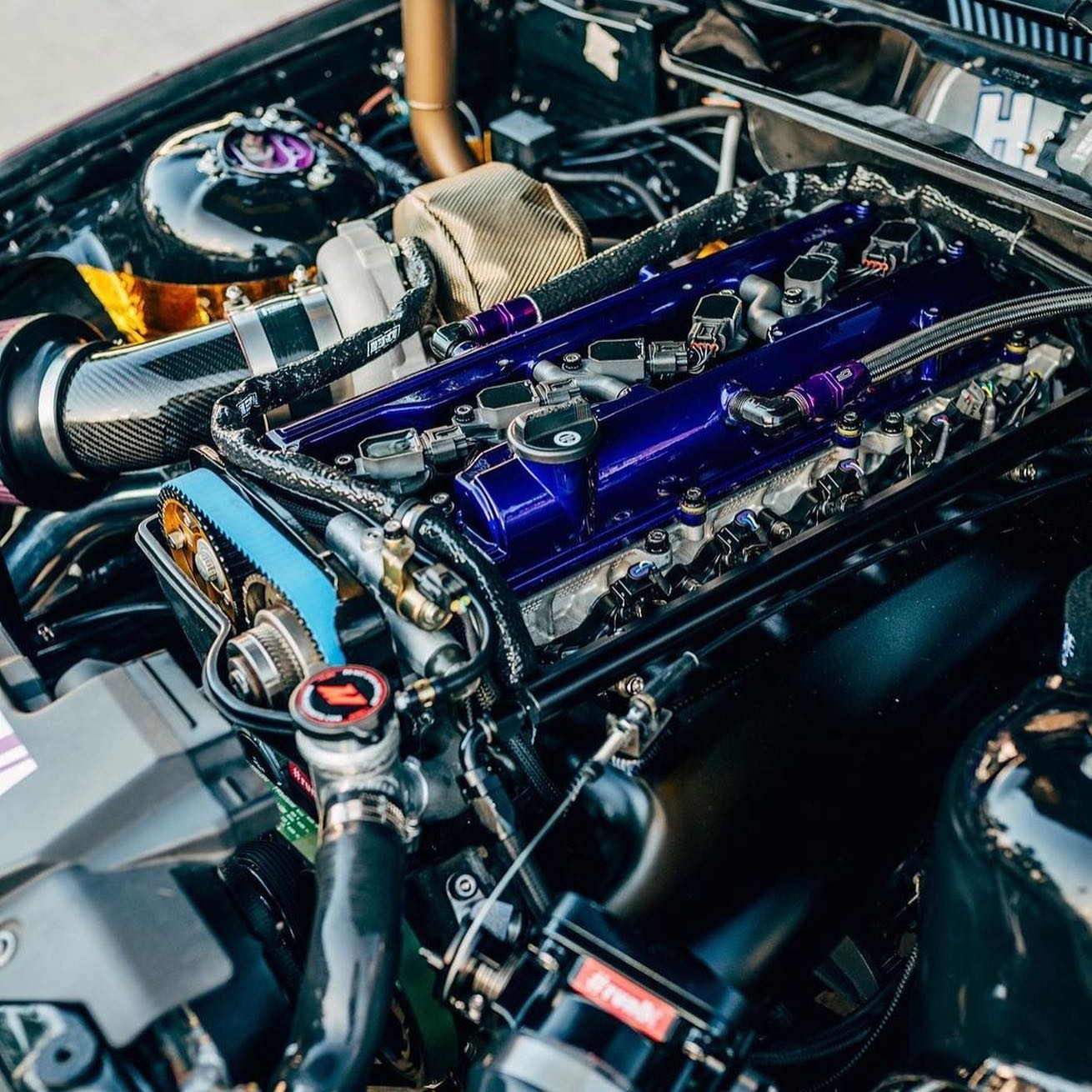Add products by adding codes
Toyota 2JZ Swap into a BMW – Japanese Engine Meets German Classic

Why choose the 2JZ and 1JZ engines?
The 2JZ-GTE engine, best known from the legendary Toyota Supra MK4, is famous primarily for its exceptional durability, massive tuning potential, and reliability—even under extreme modifications. It's a 3-liter, inline-six engine, delivering around 280-320 HP in stock form. However, its robust design enables easy upgrades, allowing it to reach significantly higher outputs—up to 800-1000 HP with appropriate modifications.

BMW – the Perfect Base for a 2JZ Swap
BMW models, particularly the E30, E36, E46, E90, as well as older 5 Series (like the E34, E39) and the 7 Series, are among the most popular bases for such engine swap projects. Robust German engineering, rear-wheel drive layout, excellent handling characteristics, and extensive availability of parts and tuning accessories make these cars ideal candidates for ambitious modifications.


Key Stages of a 2JZ Swap in BMW
-
Choosing the Right Engine:
The most popular option is the Toyota Supra MK4’s 2JZ-GTE, though the naturally aspirated 2JZ-GE with subsequent turbo conversion is also viable. The choice depends on your project goals and budget. -
Clutch and Transmission Adapter:
A professional clutch adapter is crucial, enabling precise and durable integration between the Japanese engine and the German gearbox. PMC Motorsport adapters simplify installation, ensure perfect fitment, and deliver exceptional durability. These adapters are compatible with robust and popular transmissions like the ZF5 GS5-39DZ, GS6-37DZ, and GS6-53DZ/BZ, making them ideal for high-performance tuning projects. -
Engine Mounts:
Dedicated engine mounts, often called "brackets," provide stable engine placement in the bay, significantly reducing vibrations transmitted to the chassis. -
Electronics and Management:
Selecting the proper ECU (engine control unit) is essential for maximizing the 2JZ’s potential. The wiring harness must be adapted to suit the new engine setup, frequently involving custom solutions or aftermarket plug-and-play kits. -
Cooling and Exhaust Systems:
Using a suitably sized, upgraded radiator and a custom exhaust system is critical for maintaining optimal operating temperatures and improving exhaust gas flow. This directly influences both performance and reliability.


Advantages of Swapping a Toyota 2JZ into a BMW
-
High power and impressive torque:
Installing engines from the JZ family significantly boosts BMW’s performance. Even stock configurations deliver noticeable power gains, while tuning potential easily exceeds 800 HP without sacrificing reliability. -
Durability and Reliability:
Toyota's legendary engine durability ensures long-lasting performance, even under extreme conditions, such as intensive track or drifting use. -
Distinctive Sound:
2JZ engines are renowned for their distinctive and captivating exhaust note, which, combined with BMW’s aggressive aesthetics, creates an unforgettable driving experience. -
Versatility:
The popularity of these swaps has led to numerous ready-to-use kits, parts, and comprehensive guides, simplifying the process and significantly reducing project duration.
Summary:
A Toyota 2JZ engine swap into a BMW provides unique thrills by combining the best qualities of both brands. Professional accessories, such as PMC Motorsport’s clutch adapters, ensure easy installation, perfect fitment, and lasting durability.
Engine swaps are among the most common modifications in motorsport tuning projects. A particularly popular and highly valued solution among enthusiasts is installing the legendary Toyota 2JZ engine into BMW cars. What makes this combination so special, and why is it worth considering for your project?


